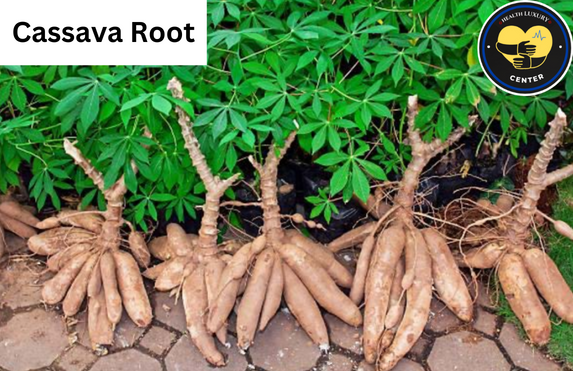Advertisements
Are you trying to conceive? You may have heard that there are certain African herbs that can improve your chances of getting pregnant.
Fertility isn’t always easy to understand because it is a common problem that affects millions of couples worldwide. While there are many medical treatments available, some couples prefer to explore natural remedies, like African herbs, to boost their fertility. These herbs have been used for a long time in Africa to treat different health conditions, including infertility.
But what if I tell you that these herbs are actually effective; I know you would doubt me. So today, I present to you 7 African Herbs for Fertility.
What Herbs are Good for Getting Pregnant?
1. Vitex Agnus-Castus
Vitex Agnus-Castus, also called Chasteberry, is an African herb that has been used for hundreds of years to enhance fertility. It’s thought to work by balancing hormones in the body, especially progesterone and estrogen levels.
Advertisements
Studies show it may enhance fertility, reduce symptoms of premenstrual syndrome (PMS), and menopause, and help regulate periods. It could also improve the quality of cervical mucus.
However, it is important to note that Vitex Agnus-Castus may not be suitable for everyone and can cause side effects like stomach problems, headaches, and dizziness. While it may offer several benefits, it is important to talk to your doctor first before considering its use, particularly if you are taking any medications or have any underlying health conditions.
2. Cassava Root
Cassava root is a starchy root vegetable that originally came from South America, but it’s grown in lots of African countries now. It’s a popular food there and also has medicinal uses. Inside cassava root, there’s a natural hormone called gonadotropin-releasing hormone (GnRH). which is believed to help stimulate ovulation and increase fertility in women. This is according to Remedy Groove
Cassava root supplements are sold as a natural way to improve fertility and are commonly used by women trying to get pregnant. However, it’s crucial to know that cassava root contains cyanide, which can be harmful if you eat a lot of it. That’s why it’s important to prepare cassava root carefully before eating it. According to Modern Ghana

3. Mondia whitei
Mondia whitei is a herb from Africa that’s been used for a long time for medicinal purposes, especially for boosting fertility in men and women. It’s also called White’s Ginger or African Ginger. It has important nutrients like vitamins A, D, K, and E, along with magnesium, zinc, iron, calcium, and protein. These nutrients are good for keeping the body healthy and strong. Plus, this herb has been found to have aphrodisiac effects, which can help improve male fertility and desire.
4. Sutherlandia Frutescens
Sutherlandia frutescens which is also known as the “Cancer Bush,” has been used for centuries by traditional healers to treat various health issues, including infertility.
It is thought to have properties that boost the immune system, which can indirectly support fertility. It contains different compounds like canavanine and pinitol, which have been found to have anti-inflammatory and antioxidant effects. These compounds can help reduce inflammation and oxidative stress in the body, which might be helpful for fertility.
According to Feel Good Health, this herb has traditionally been used to treat conditions such as diabetes, tuberculosis, arthritis, viral infections, colds, flu, and chronic fatigue.
7 Best Foods to Increase Fertility
Benefits of Mango Sexually
Does Honey Improve Sexual Performance?
5. Pennisatum purpureum (Leaves)
Pennisetum purpureum, also called Napier grass, is a species of perennial tropical grass native to the African grasslands. The leaves of Pennisetum purpureum have been used in traditional African medicine to enhance fertility. The leaves of this plant are rich in nutrients and have been found to have antioxidant and anti-inflammatory properties.
Consuming Pennisetum purpureum leaves may help to enhance fertility by increasing the production of healthy eggs and sperm. The leaves contain essential vitamins and minerals such as vitamin C, vitamin A, calcium, and iron, which are needed for reproductive health.
6. Palisota hirsuta (Roots)
Palisota hirsuta is a plant you can often find in tropical parts of Africa. The roots of this plant have been used for a long time as natural medicine to help with different health problems, including infertility. The root extract of Palisota hirsuta is believed to have aphrodisiac and fertility-enhancing properties.
Studies show that the root extract can increase sperm count.
Further studies also reveal that Palisota hirsuta root acts like an antioxidant which can help protect sperm cells from oxidation damage.
7. Tetrapleura tetraptera (Stem bark)
The “aridan” tree, also known as Tetrapleura tetraptera, is mostly sought after for its stem bark when it comes to using it for medicine. This bark contains different useful compounds like tannins, alkaloids, flavonoids, and saponins, which are believed to be good for boosting fertility.
Researchers have found out that Tetrapleura tetraptera is really good at fighting off harmful substances called oxidants, thanks to its strong antioxidant properties.
This is important because oxidative stress, which happens when there are too many oxidants in the body, can lead to fertility problems in both men and women. So, taking in antioxidants from Tetrapleura tetraptera might be helpful in improving fertility.
Conclusion
For a long time, people in Africa have relied on plants to assist women in boosting fertility. Many of these plants are natural, and some have been proven effective through scientific research. However, it’s important to note that not all plants are safe to consume. Therefore, it’s always best to consult with your doctor before attempting any herbal remedies.
Furthermore, it is important to maintain a healthy lifestyle when looking for the fruit of the womb. A balanced diet, regular exercise, and stress management are all part of this.
